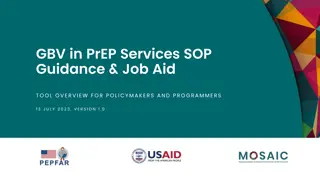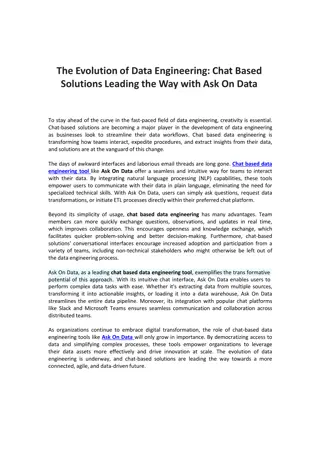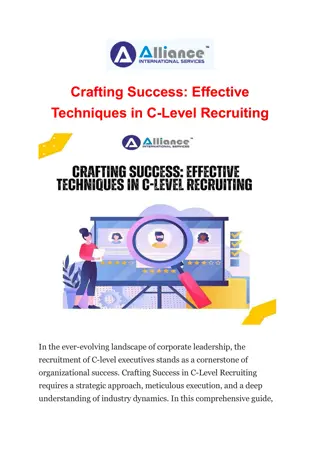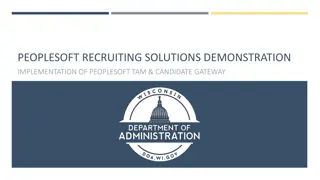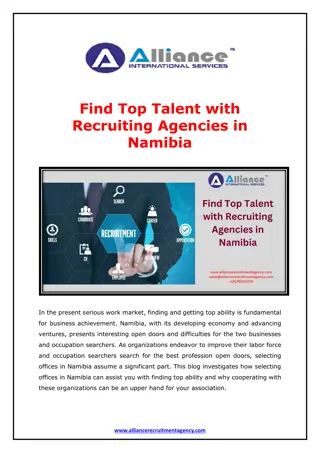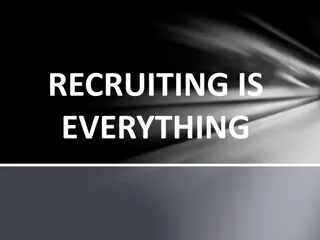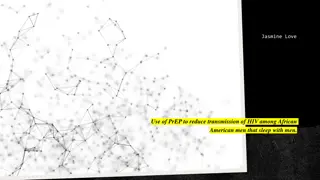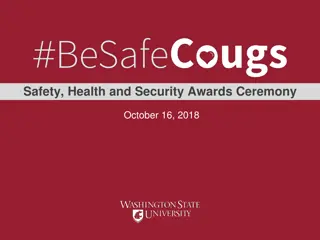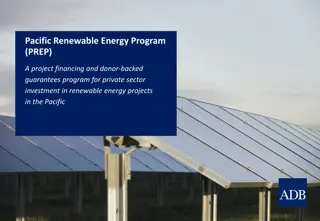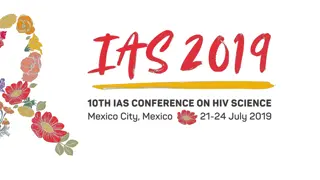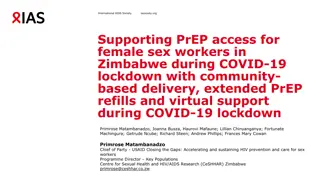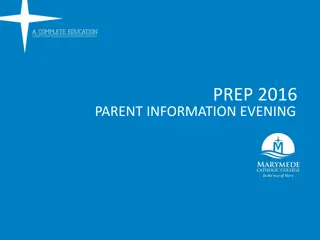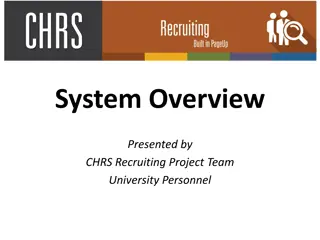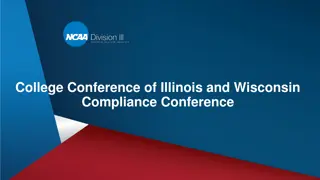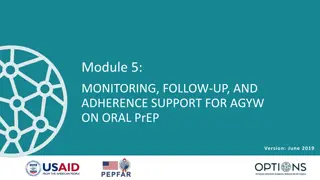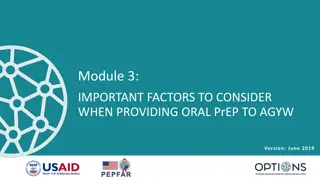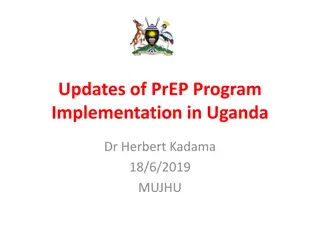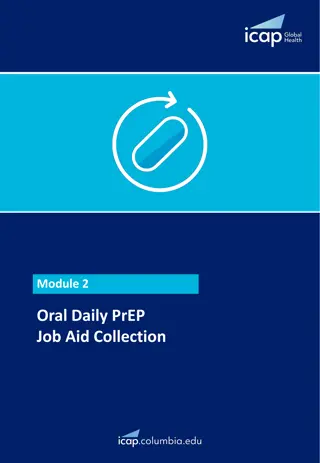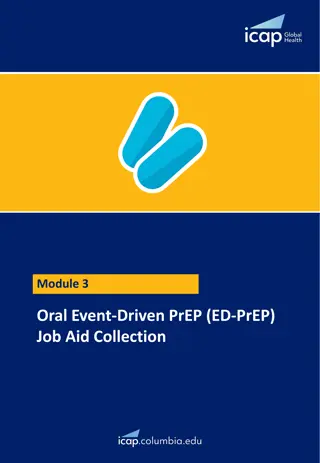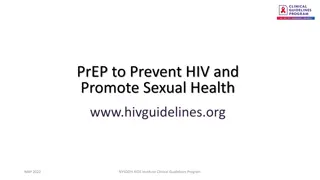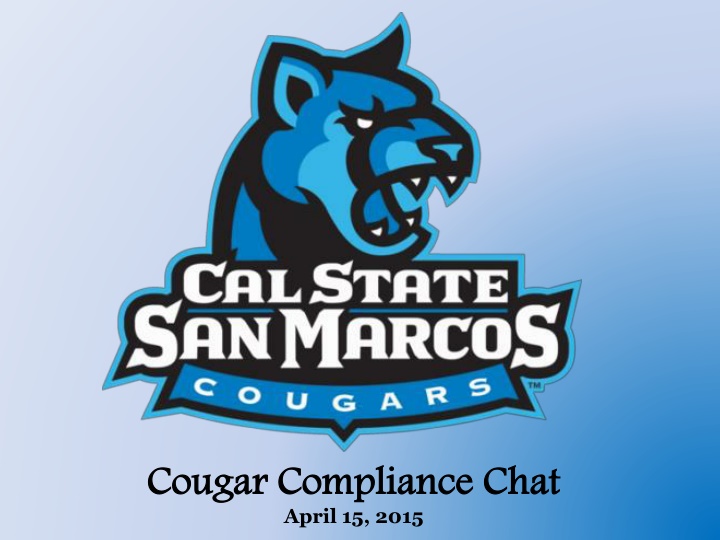
NCAA Recruiting Certification Test Dates and Regulations 2015
Stay informed about the 2015 NCAA Division II Recruiting Certification Test dates, schedule changes, and important regulations regarding retaking the test. Learn about contacts, evaluations, and telephone call guidelines to ensure compliance in recruiting activities.
Download Presentation

Please find below an Image/Link to download the presentation.
The content on the website is provided AS IS for your information and personal use only. It may not be sold, licensed, or shared on other websites without obtaining consent from the author. If you encounter any issues during the download, it is possible that the publisher has removed the file from their server.
You are allowed to download the files provided on this website for personal or commercial use, subject to the condition that they are used lawfully. All files are the property of their respective owners.
The content on the website is provided AS IS for your information and personal use only. It may not be sold, licensed, or shared on other websites without obtaining consent from the author.
E N D
Presentation Transcript
Cougar Compliance Chat Cougar Compliance Chat April 15, 2015
Dumb Shining Moment Dumb Shining Moment http://deadspin.com/dumb-shining-moment-the-2015-ncaa- tournament-lowlight-1696183514
2015 2015- -16 NCAA Division II 16 NCAA Division II Recruiting Recruiting Certification Test Certification Test
Recruiting Certification Test Recruiting Certification Test Tentative Test Dates (computer lab in SBSB) Thursday, May 7th 8:30-10:00am Thursday, May 7th 2:30-4:00pm Monday, May 18th 10:00am-2:00pm (contingent upon schedules) Tentative Review Date (Clarke 110) Wednesday, May 6th 10:00-11:00am One important change to the legislation that impacts the Recruiting Certification Test is that the waiting period for retaking the test is now 14 days instead of 30 days.
Contacts & Evaluations Contacts & Evaluations Contact (C) - A contact is any face-to-face encounter between a PSA or the PSA s relatives or legal guardian and an institutional staff member or athletics representative during which any dialogue occurs in excess of an exchange of a greeting. There is an unlimited number of in-person, off-campus recruiting contacts per PSA. Evaluation (E) - Any off-campus activity designed to assess the academic qualifications or athletics ability of a PSA. Including any visit to a PSA's educational institution (during which no contact occurs) or the observation of any practice or competition at any site at which the PSA participates. There is an unlimited number of evaluations an institution is allowed per PSA.
Contacts & Evaluations Contacts & Evaluations Telephone Calls (T) - All electronically transmitted human voice exchange (including videoconferencing and videophones) shall be considered telephone calls. Any other form of electronically transmitted correspondence (e.g., e-mail, fax, text) shall not be considered telephone calls. Telephone calls to a PSA or the PSA's relatives or legal guardian(s) shall not be made before June 15 immediately preceding the PSA's junior year in high school; thereafter, there shall be no limit on the number of telephone calls made by institutional staff members to a PSA or the PSA's relatives or legal guardian(s).
Contacts & Evaluations Contacts & Evaluations Printed Recruiting Material - An institution may not provide athletically related recruiting materials (including e-mail and fax) to a PSA or the PSA's relatives or legal guardian(s) and coaches before June 15 immediately preceding the PSA's junior year in high school. Electronic Transmissions (ET) - Electronically transmitted correspondence (e.g., instant messaging, text messaging) shall not be sent to a PSA or the PSA s relatives or legal guardian(s) and coaches before June 15 immediately preceding the PSA's junior year in high school. All electronically transmitted correspondence shall be sent directly to the PSA or the PSA's relatives or legal guardian(s) and coaches and shall be private between only the sender and recipient (e.g., no use of chat rooms, message boards, posts to "walls"). The requirement that electronically transmitted correspondence be private between recipient and sender is not applicable to electronic communication between the institution and a PSA after he or she has signed a National Letter of Intent or the institution's written offer of admission and/or financial aid. There shall be no limit on the number of electronic transmissions sent by institutional staff members to a PSA or the PSA s relatives or legal guardian(s).
Contacts & Evaluations Contacts & Evaluations High School Prospect - In-person, off-campus recruiting contacts and telephone calls shall not be made with a PSA or a PSA s relatives or legal guardians before June 15 immediately preceding the PSA s junior year in high school. This includes Two-Year College Prospects. Four-Year College Prospect - An athletics staff member or other representative of the institution's athletics interests shall not make contact with the student-athlete of any four-year collegiate institution, directly or indirectly, without first obtaining the written permission from the student-athletes institution regardless of who makes the initial contact. If permission is not granted, the second institution shall not encourage the transfer and shall not provide athletically related financial assistance to the student-athlete until the student-athlete has attended the second institution for one academic year.
Recruiting Calendars Recruiting Calendars Contact Period - period of time when it is permissible for authorized athletics department staff members to make in-person, off-campus recruiting contacts and evaluations. Evaluation Period (basketball) - Period of time when it is permissible for authorized athletics department staff members to be involved in off-campus activities designed to assess the academic qualifications and playing ability of prospective student-athletes. No in-person, off-campus recruiting contacts shall be made with the PSA during an evaluation period.
Recruiting Calendars Recruiting Calendars Quiet Period (basketball) - period of time when it is permissible to make in- person recruiting contacts only on the member institution's campus. No in-person, off-campus recruiting contacts or evaluations may be made during the quiet period. Dead Period - period of time when it is not permissible to make in-person recruiting contacts or evaluations on or off the member institution's campus or to permit official or unofficial visits by prospective student-athletes to the institution's campus. Complimentary admission to a PSA during a dead period is prohibited. A coaching staff member may not serve as a speaker at or attend a meeting or banquet at which PSAs are in attendance and may not visit the PSA s educational institutions. It remains permissible, however, for an institutional staff member to email, call, or text PSAs.
Visits Visits There are two classifications for visits: 1. Official (Paid) Visit A visit financed in whole or in part by the member institution 2. Unofficial (Nonpaid) Visit A visit made at the expense of the prospective student-athlete (PSA) A vast majority of visits will likely fall into this category
Official (Paid) Visits Official (Paid) Visits Only 1 per PSA per institution during high school Beginning September 1st after a PSA graduates from high school, 1 additional official visit can be taken per institution (e.g. 2 or 4 year transfer) PSA can have 1 official visit at an unlimited number of institutions No official visits earlier than June 15th immediately preceding the PSA s junior year in high school
Official (Paid) Visits Official (Paid) Visits Requirements for a high school student s official visit: Official or unofficial transcripts Registered with the NCAA Eligibility Center Placed on the CSUSM Intuitional Request List (IRL) with the Eligibility Center
Official (Paid) Visits Official (Paid) Visits Length of Visit: No more than 48 hours (starts when PSA arrives on campus, ends when leaves campus for trip home) Travel: Institution can pay for the actual round-trip transportation costs for the PSA (no limos or helicopters) It is not permissible for an institution to pay any leg of a PSA s transportation costs if he or she participates in an institutional camp or clinic in conjunction with an official visit. Lodging: Must be within 30-mile radius and provided at a scale comparable to that of normal student life (e.g. no penthouse suites)
Official (Paid) Visits Official (Paid) Visits Entertainment: Confinedto the PSA and relatives/legal guardians (no friends or girlfriend/boyfriend). Cannot be excessive or exceed the $30 per day entertainment allowance. All entertainment must be within a 30 mile radius of campus. Complimentary Admission to Home Athletic Events: Max of 3 including PSA (Conference and postseason tournaments prohibited) Meals: An institution may provide actual cost of meals for PSA and relatives/legal guardians Parking: Can issue a parking pass to PSA
Unofficial (Nonpaid) Visits Unofficial (Nonpaid) Visits Number of Visits: Unlimited A prospective student-athlete may make unofficial visits before his or her senior year in high school (in other words, throughout high school unless during a dead period ) Complimentary Admission to Home Athletic Events: Max of 3 including PSA (Conference and postseason tournaments prohibited) Meals: An institution may provide a PSA (and the PSA's relatives or legal guardians) with one meal on or off campus in the locale of the institution Parking:Can issue a parking pass to PSA Housing: PSA may stay in an enrolled student-athlete's dorm room only if the PSA pays the regular institutional rate for such lodging.
Unofficial (Nonpaid) Visits Unofficial (Nonpaid) Visits Transportation: The institution may provide the PSA with transportation to: 1) View practice and competition sites in the PSA's sport, 2) Other institutional facilities 3) A permissible meal off campus in the locale of the institution 4) Attend an institution's home athletics contest (on or off campus) (if transportation is available to prospective students generally) No other transportation of PSA is permitted (e.g. to or from PSA s home, to or from bus/train station or airport)
Tryouts Tryouts - - PSAs PSAs High School: beginning June 15 immediately preceding the PSA's junior year in high school and outside his or her high school's traditional season in the sport (which shall begin with the first official team practice and conclude with the team's final competition) Two-year transfer: after the conclusion of the sport season or anytime, provided the student has exhausted his or her two-year college eligibility in the sport Four-year transfer: after the conclusion of the sport season, provided written permission to contact the prospective student-athlete has been obtained
Tryouts Tryouts - - PSAs PSAs Regulations A member institution may conduct a tryout of a PSA only on its campus or at a site at which it normally conducts practice or competition. Not more than one tryout per PSA per institution per sport shall be permitted. A PSA is required to undergo a medical examination administered by a physician. The tryout may include tests to evaluate the prospective student-athlete's strength, speed, agility and sport skills. Competition against the member institution's team is permissible, provided such competition occurs during the academic year and is considered a CARA. Tryouts can not be longer than 2 hours. The institution may provide equipment and clothing on an issuance-and-retrieval basis to a PSA during the period of the tryout.
Tryouts Tryouts Enrolled Students Enrolled Students Regulations A member institution may conduct a tryout only on its campus or at a site at which the institution normally conducts practice or competition. Must be during the regular academic year. Must be enrolled full-time (12 units or more). Not more than one tryout per student per sport shall be permitted. The student must be in good academic standing (aka Cum and institutional 2.0 GPA). The student is required to undergo a medical examination administered by a physician. The examination shall include a sickle cell solubility test (SST), unless documented results of a prior test are provided to the institution or the prospective student-athlete declines the test and signs a written release. The examination or evaluation must be administered within six months prior to participation in the tryout.
Tryouts Tryouts Enrolled Students Enrolled Students Regulations (cont.) The time of the tryout activities shall be limited to 14-consecutive calendar days from the first date the student engages in countable athletically related activities. During the 14-consecutive calendar-day period of a tryout, an enrolled student shall not exceed the daily and weekly hour limitations (CARA). Competition against the member institution's team (e.g., inter squad scrimmage) is permissible, provided such competition occurs during the academic year and is considered a CARA. The institution may provide equipment and clothing on an issuance-and- retrieval basis to a student during the period of the tryout.
Camps/Clinics Camps/Clinics Purposes of Camps or Clinics (a) Places special emphasis on a particular sport or sports and provides specialized instruction, practice or competition; (b) Involves activities designed to improve overall skills and general knowledge in the sport; or (c) Offers a diversified experience without emphasis on instruction, practice or competition in any particular sport. Tryout Camps A member institution or conference may not conduct a tryout camp devoted to agility, flexibility, speed and strength tests for PSA. A member institution s staff members may not attend such a tryout camp sponsored by an outside organization if the camp invites only representatives from selected institutions or conferences to observe the camp.
Camps/Clinics Camps/Clinics Attendance Restriction A member institution s sports camp or clinic shall be open to any and all entrants (limited only by number and age). Recruiting Calendar Exceptions The interaction during sports camps and sports clinics between prospective student- athletes and those coaches employed by the camp or clinic is not subject to the recruiting calendar restrictions. However, other coaches wishing to attend the camp as observers must comply with appropriate recruiting contact and evaluation periods. In addition, institutional camps or clinics may not be conducted during a dead period. Timing An institution s basketball camp or clinic may be conducted only during an institution s summer-vacation period, unless such activities meet the provisions regarding developmental clinics.
Camps/Clinics Camps/Clinics Employment of PSAs at Camp or Clinic An institution may employ a PSA at institutional sports camps or clinics. A PSA who has signed an NLI or written offer of admission and/or financial aid may only be employed at an institutional sports camp or clinic by the institution with which he or she signed a written commitment. A PSA who has not signed an NLI or written offer of admission and/or financial aid may be employed at any institutional sports camp or clinic. Employment of a PSA at institutional sports camps or clinics shall only occur under the following conditions: (a) Compensation provided to the PSA is only for work actually performed and at a rate commensurate with the going rate in that locality for similar services; (b) The employment does not begin before the completion of the prospective student-athlete s senior year of high school and the prospective student-athlete has completed all competition for the academic year in his or her sport; (c) The prospective student-athlete must perform duties that are of a general supervisory nature in addition to any coaching or officiating assignments; and (d) A prospective student-athlete who only lectures or demonstrates may not receive compensation for his or her appearance.
Camps/Clinics Camps/Clinics Recruiting Materials An institution may provide educational information published by the NCAA (e.g., NCAA Guide for the College-Bound Student-Athlete), institutional camp brochures, questionnaires and non-athletically related recruiting materials (e.g., institutional admissions publications, academic publications, student services publications) to a PSA at any time. Costs In operating a sports camp or clinic, an institution, members of its staff or a representative of its athletics interests shall not give free or reduced admission privileges to any individual who has started classes for the ninth grade. Exceptions permissible if institution offers group rate, early bird rate or institutional employees.
CARA CARA Includes any required activity with an athletics purpose, involving student-athletes and at the direction of, or supervised by, any member of an institution s coaching staff. CARA NOT CARA Practice Pick up/Captain s practice Games Travel Weights/Conditioning Rehab Tryouts Preparation of field for practice Film/Game Strategy Meeting Mentoring/Study hall
Voluntary Athletically Related Activities To be considered voluntary, all of the following must be true: 1) The student-athlete must not be required to report back to a coach or other athletic department staff member any information related to the activity. 2) No athletic department staff member who observes the activity may report back to the coach any information related to the activity. 3) The activity must be initiated and requested solely by the student- athlete.
4) The student-athletes attendance and participation in the activity (or lack thereof) may not be recorded for the purposes of reporting such info to the coach or other student-athletes. 5) The student-athlete may not be subjected to penalty if he/she elects not to participate in the activity. 6) Neither the institution nor any athletic department staff member may provide recognition or incentives to the student-athlete based on his/her attendance or performance in the activity.
Playing Season (Championship & Non-Championship): Daily and Weekly Hour Limitations Day: max 4 hours Week: max 20 hours (Golf may exceed 4 hours per day, but must not exceed 20 hours per week) Required Day Off: All CARA is prohibited one calendar day a week, except during participation in conference and postseason championships.
Playing Season (Championship & Non-Championship): Daily and Weekly Hour Limitations Pre-Season Practice Check Bylaw 17 for sport specific legislation. Vacation Periods and Between Terms Daily and weekly hour limitations do not apply to CARA occurring during an institution s official vacation period and during the academic year between terms when classes are not in session. (i.e. winter and spring break) Competition Day All competition (except scrimmages) and any associated athletically related activities on the day of competition count as 3 hours regardless of the actual duration of these activities. -Including golf practice rounds the day before a tournament.
Outside Playing Season: Weekly Hour Limitation Week: max 8 hours of weight training, conditioning, team activities and/or skill instruction (max 2 hours on team activities and/or skill instruction) Required Days Off: All CARA is prohibited two calendar days a week.
Outside Playing Season: Weekly Hour Limitation Skill Instruction Participation by student-athletes in individual skill- related instruction is permitted outside the institution s declared playing season. Conditioning Drills that simulate game activities are permissible, provided no offensive or defensive alignments are setup and no equipment related to the sport is used. Final Exam Period All CARA outside of the playing season are prohibited one week prior to the beginning of final exam period through the conclusion of final exams. Vacation Period All CARA outside of the playing season are prohibited during institutional vacation periods (i.e. winter, spring, summer break).
Questions? Questions?

